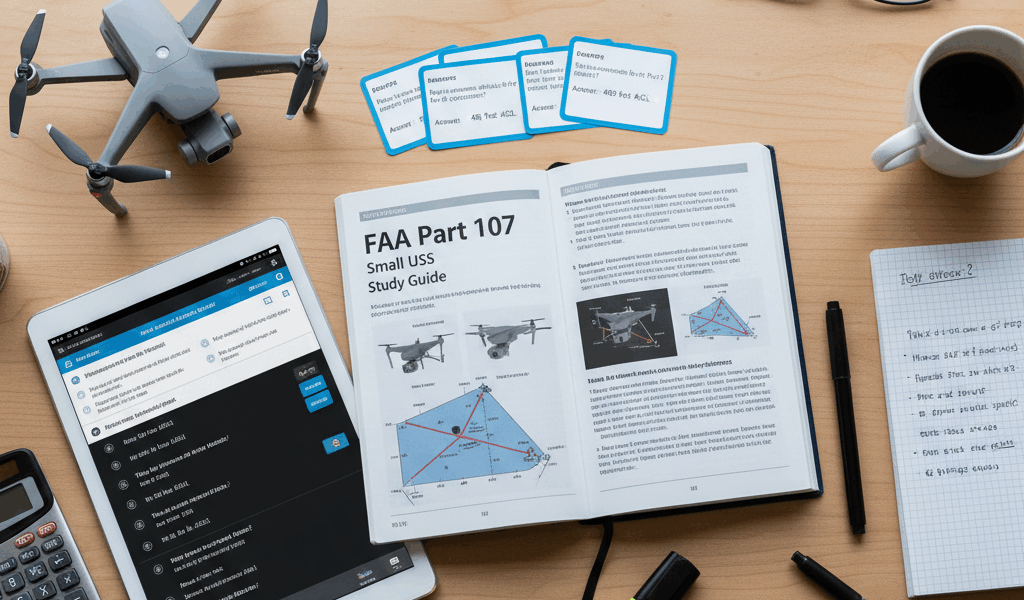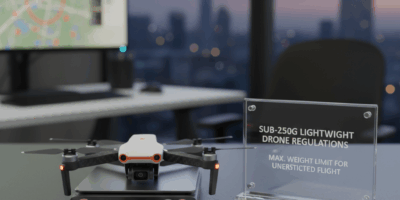Drone Understanding UAS Test Prep guidance has gotten complicated with all the outdated regulations and conflicting advice flying around. Here’s what you actually need to know.
Understanding UAS Test Prep: A Comprehensive Guide
The use of Unmanned Aircraft Systems (UAS) is expanding rapidly across various sectors. This rise has increased the demand for qualified drone pilots. Consequently, a structured path for training and testing has emerged. By mastering the essentials of UAS test prep, aspiring pilots can enhance their chances of obtaining certification.

Why UAS Certification Matters
Certification ensures pilots operate UAS safely and legally. Whether used for recreational or commercial purposes, having the right credentials is crucial. Certified pilots gain access to more opportunities. They can work in industries like agriculture, cinematography, and infrastructure inspection, among others. The certification also helps in maintaining public safety and adhering to regulatory standards.
Understanding the UAS Test Requirements
Before taking the test, it’s vital to understand the specific requirements. In the United States, the Federal Aviation Administration (FAA) oversees drone operation standards. Their guidelines are comprehensive and detailed. To legally fly a drone for commercial purposes, one must pass the FAA’s Part 107 exam. Exceptions apply, but the Part 107 certification remains the core requirement for most aspiring drone pilots.
- Age: Applicants must be at least 16 years old.
- English Proficiency: Test takers must be able to speak, read, and understand English.
- Physical and Mental Condition: Operators should be in optimal condition to safely perform UAS tasks.
Studying for the FAA Part 107 Exam
The exam covers a range of topics. Test preparation should focus on airspace classifications, drone regulations, weather conditions, and emergency procedures. Understanding how to interpret METAR and TAF reports is essential. Knowledge of reading sectional charts is equally important. Candidates should become familiar with the effects of loading and performance on UAS.
It’s advisable to create a structured study schedule. Consistent study habits can greatly improve recall and understanding. Utilizing online resources and practice tests can also enhance preparation. Learning through multiple formats—videos, reading material, and interactive quizzes—ensures a well-rounded grasp of topics.
Key Study Resources
- FAA’s Remote Pilot – Small UAS Study Guide: A primary resource with detailed information.
- Online courses: Websites like Udemy offer comprehensive UAS test prep courses.
- Mobile apps: Tools like Prepware help in sharpening focus and refining skills through quizzes and explanations.
Exam Day: What to Expect
On exam day, confidence and composure are essential. Arriving early at the test center can reduce anxiety. Each exam has 60 multiple-choice questions. Test takers typically have two hours to complete it. Scoring at least 70% is required to pass. Proper preparation usually leads to successful first-time attempts.
Practical Knowledge: Simulator and Field Training
Beyond theoretical knowledge, practical skills are equally critical. Flight simulators provide a risk-free environment for practice before testing out in the field. They help in understanding control mechanics and drone response in various conditions.
Field training reinforces what’s learned through simulators. Practical experience gives insights into real-world challenges like wind, obstacles, and varying visibility. Such experience is invaluable for test prep.
The Importance of Staying Updated
The field of UAS is dynamic. Regulations and technologies evolve frequently. Certified pilots should stay informed about changes in UAS norms and advancements. This knowledge aids in maintaining certification and ensuring compliance with updated regulations.
Joining UAS Communities
Engagement with UAS communities can offer support and resources. Interaction through forums, social media, and local meet-ups is beneficial. It provides insights from seasoned pilots, tips, and industry news. Networking within these groups can also lead to new opportunities and collaborations.
Continuous Learning and Skill Improvement
Certification is just the beginning. To excel as a drone pilot, continuous learning is necessary. Advanced certifications can enhance skills and open new avenues within specialized sectors. Regularly reviewing and practicing fundamental knowledge keeps skills sharp.
Conclusion
Certification and adequate preparation for the UAS test are necessary for a reliable and competent drone operation. Following a comprehensive and strategic preparation plan will lead to success. Staying informed and connected within the UAS community will help maintain and enhance professional growth.



